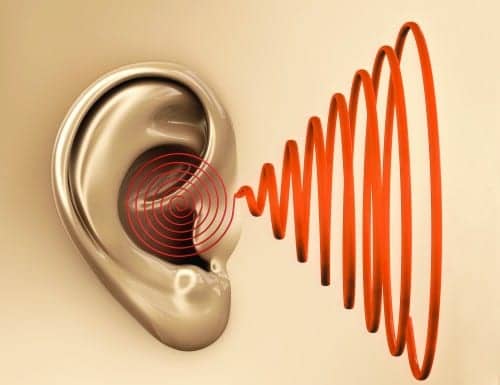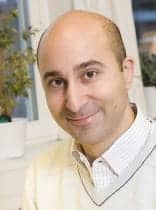The American Academy of Otolaryngology—Head and Neck Surgery Foundation (AAO-HNSF) released on October 1 the first-ever multi-disciplinary, evidence-based clinical practice guideline to improve the diagnosis and management of tinnitus. The guideline appears in the October 2014 edition of Otolaryngology–Head and Neck Surgery.
“Tinnitus affects 10-15% of adults in the United States,” says Sujana S. Chandrasekhar, MD, a co-author of the guideline. “It is the most common service-related disability among our military veterans. Yet despite its prevalence and effect on quality of life, prior to this there weren’t any evidence-based guidelines about managing tinnitus.”
One of the strongest recommendations in the guideline is that clinicians differentiate between bothersome tinnitus and nonbothersome tinnitus. “About 20% of adults who experience tinnitus require clinical intervention, the rest are experiencing nonbothersome tinnitus,” explained Dr Chandrasekhar.
The guideline—developed by a panel including representatives for otolaryngologists, geriatricians, primary care physicians, nurses, psychiatrists, behavioral neuroscientists, neurologists, radiologists, audiologists, psychoacousticians, and tinnitus patients—gives healthcare providers a framework for care and support in mitigating the personal and social impact that tinnitus can have. The guideline’s recommendations are made by experienced clinicians and methodologists, including Hearing Review contributors and audiologists Craig Newman, PhD, and Richard Tyler, PhD, according to the best scientific evidence.
Among the highlights of the guideline is a strong recommendation that clinicians distinguish patients with bothersome tinnitus from patients with nonbothersome tinnitus, and a strong recommendation against obtaining imaging studies of the head and neck in patients with tinnitus, specifically to evaluate tinnitus that does not localize to one ear, is nonpulsatile, and is not associated with focal neurologic abnormalities or an asymmetric hearing loss. Among several recommendations for the assessment and treatment of tinnitus, the development group recommend a hearing aid evaluation for patients who have persistent, bothersome tinnitus associated with documented hearing loss, as well cognitive behavioral therapy (CBT) to patients with persistent, bothersome tinnitus (see the literature review provided by Beck et al in the October Hearing Review). For tinnitus options, the guidelines recommend that “clinicians may (a) obtain an initial comprehensive audiologic examination in patients who present with tinnitus (regardless of laterality, duration, or perceived hearing status); and (b) recommend sound therapy to patients with persistent, bothersome tinnitus.”
The panel recommended against antidepressants and several other dietary supplements for persistent bothersome tinnitus (see online summary for full list), but there was no recommendation (for or against) regarding acupuncture.
The full text of the guideline can be accessed at: http://oto.sagepub.com/content/151/2_suppl/S1.full
The guideline authors are David E. Tunkel, MD; Carol A. Bauer, MD; Gordon H. Sun, MD, MS; Richard M. Rosenfeld, MD, MPH; Sujana S. Chandrasekhar, MD; Eugene R. Cunningham Jr, MS; Sanford M. Archer, MD; Brian W. Blakley, MD, PhD; John M. Carter, MD; Evelyn C. Granieri, MD, MPH, MSEd; James A. Henry, PhD; Deena Hollingsworth, RN, MSN, FNP; Fawad A. Khan, MD; Scott Mitchell, JD, CPA; Ashkan Monfared, MD; Craig W. Newman, PhD; Folashade S. Omole, MD; C. Douglas Phillips, MD; Shannon K. Robinson, MD; Malcolm B. Taw, MD; Richard S. Tyler, PhD; Richard W. Waguespack, MD, and Elizabeth J. Whamond.





